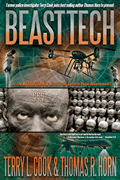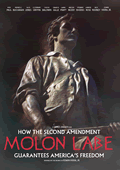REGULATION BY "RAISED EYEBROW" RETURNS TO FCC
By Attorney Jonathan
Emord
Author of "The Rise of Tyranny" and
"Global Censorship of Health Information" and
"Restore The Republic"
February 18, 2014
NewsWithViews.com
Licensed by the Federal Communications Commission to broadcast, radio and television media are readily intimidated by the threat of FCC content regulation. They often comply with FCC editorial “suggestions” that are never formally adopted as regulations. Last week, the FCC announced that it would have its field agents visit broadcast media outlets to investigate story selections in a quest to uncover “perceived station bias.” Once again FCC intrudes into the constitutionally protected editorial prerogatives of broadcast journalists. The FCC is returning to its old game of media coercion, what fifty years ago Jack Gould referred to as “regulation by raised eyebrow.”
In January of 1960, then FCC Chairman John Doerfer met in secret with the presidents of ABC, NBC, and CBS. He “suggested” to them that they take turns airing a half hour of informational, cultural, and educational programs daily. In other words, Doerfer presumed he knew better than private broadcast journalists what ought to be aired on their stations and had the power, as FCC Commissioner, to breathe down their backs to make that happen. At the time, legendary New York Times media reporter Jack Gould referred to this sub silentio regulation as “regulation by raised eyebrow.”
From 1940 until 1987, FCC imposed an onerous editorial regulation on broadcasters that enabled the agency to second guess for political reasons broadcast media editorial selections on hot and timely topics. That rule, the Fairness Doctrine, required broadcasters to air divergent viewpoints whenever they broadcast any view on a controversial issue of public importance. The rule gave FCC super editorial control over all broadcast media, intimidating broadcasters into either avoiding coverage of controversial issues or avoiding editorialization. Only following the demise of the Fairness Doctrine did broadcast licensees employ commentators who communicated unfettered and robust political opinions.
It is precisely because talk radio is now dominated by conservative and libertarian opinion that the FCC now wishes to intimidate those who carry such programming into putting unpopular liberal commentators on the air. Note well that if liberal opinions had currency with American radio and television audiences, they would be aired because that would be in the economic interest of station owners, but they do not. Indeed, stations that have tried to air liberal programming have, by and large, lost market share to those who air conservative and libertarian programming.
Undoubtedly, when the FCC comes knocking on a licensee’s door and wants to know what editorial content is broadcast that, in and of itself, sends a chill down the spine of station programmers and owners. They know that if FCC is scrutinizing their content, they must be mindful of the political bias of the commissioners, lest their programming choices will be called into question. Thus, the FCC’s “Multi-Market Study of Critical Information Needs” will have a chilling effect on speech in and of itself, because it will cause station owners and programmers to experience the jitters and make editorial changes that remove content that FCC’s commissioners may perceive as biased, just to avoid becoming scrutinized by that licensing authority.
Our history dictates that government does not examine the content of the press without an interest in imposing politically preferred content in lieu of privately chosen content. That examination is thus a form of censorship. FCC is well aware of that history. With full intent, FCC now quite indelicately trenches on the First Amendment by seeking to know and then to evaluate the editorial content of the licensed broadcast media.
Much like the odious IRS inquiries made of Tea Party and conservative non-profits, this FCC foray into the private domain of editorial selection is meant to intimidate and smacks of Big Brother and a sub silentioreturn to the odious Fairness Doctrine.
FCC plans to delve into eight categories of “critical information” at each station and to probe each station’s “news philosophy” to arrive at a determination as to whether programming is biased. That, of course, is regulation by “raised eyebrow.”
Although
most broadcast regulatees fear disobeying or countermanding the will
of the agency that licenses them, that is precisely what they should
do in this instance. When FCC comes knocking with its “Multi-Market
Study of Critical Needs” this Spring, each licensee contacted
should refuse to supply any response on First Amendment grounds. If
every station will abide by that practice, FCC will be called out
on its censorship and rebuffed to the applause of every American who
cherishes the right to freedom of speech and the press.
In my book Freedom, Technology, and the First Amendment, I have explained
that the only system that truly protects the intended meaning of the
First Amendment is a property rights system (one that rejects licensure
in favor of vesting property rights in broadcasting parameters to
station owners).
However you label it, the Multi-Market Studyof Critical Needs” is an invasion of editorial prerogative that is constitutionally protected and is a prelude to more overt forms of government censorship. It is legally indefensible. If there is any hard and fast rule that the First Amendment delivers, it is that the government must keep its hands off the press.
There can be no government “suggestion,” no lurking government presence, in the room when station programmers decide what to air. There can be no semblance of fear induced by FCC second guessing of editorial prerogatives if we are to enjoy freedom of the press.
|
The Commissioners of the FCC swore an oath to uphold the Constitution. Former FCC Commissioners Mark Fowler, Dennis Patrick, and James Quello understood the significance of their oaths when they, on that basis, supported elimination of the Fairness Doctrine.
In so many respects, the Obama Administration emulates through regulatory bullying the common practices of third world dictators. Now, in the final years of this Administration, it is moving in the direction of more editorial censorship (ask James Rosen of Fox News about how this Administration intimidates journalists). That move must be stopped. The Fairness Doctrine genie must not simply be locked securely into its bottle, the bottle itself must be obliterated.
Click here to visit NewsWithViews.com home page.
















 Share This Article
Share This Article







